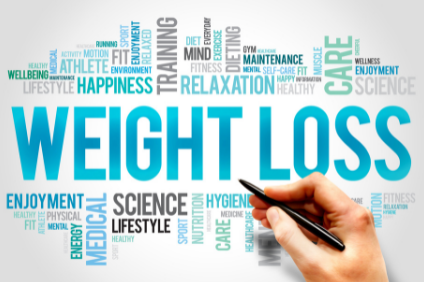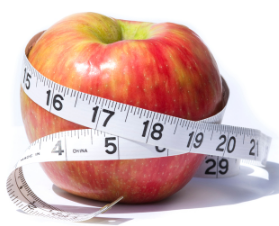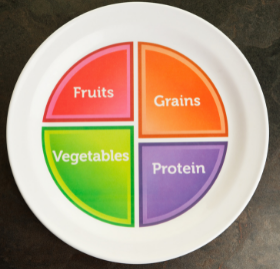
![]() Ginika Oluchi okekeWeight LossJuly 6, 2022
Ginika Oluchi okekeWeight LossJuly 6, 2022
When it comes to shedding unwanted pounds, one is usually faced with the dilemma of things to do that actually work and futile efforts that may turn out to be unsustainable at best. It also does not help that the internet is now awash with a lot of false information about weight loss.
Are you passionate about losing weight? In this article, we outline tips that really work.
We have to admit that, for starters, weight loss can be challenging. If you are overweight, you definitely may be conversant with unsolicited advice on ways to lose weight fast, especially from people (usually non-experts) who know little or nothing about the human body vis-a-vis body fat.
From peddling many weight loss myths like the belief that certain supplements can make you lose weight permanently to unproven conceptions like saying that a radical physical exercise regimen is the only way to burn fat.
After meticulous research, we have put together tips that actually do work for effective weight loss to save you from the myriad of false information available online concerning burning fat.
However, before we dive fully into the subject matter, it is important to note that the whole journey of losing weight is not a walk in the park. Remember, nothing good comes easy, right?
Like they say, “No pain, no gain.”
The best way to approach weight loss is as a marathon and not as a sprint. Thus, do not be so eager to lose a lot of weight as soon as possible, as going about it this way may propel you into unrealistic attempts at losing weight that are usually unsustainable.

According to an exercise expert, Sabrena Jo, cutting down a lot of calories at once slows down the body’s metabolism. Metabolism is the chemical reaction that occur in the body to change food into energy to sustain life.
So, by drastically cutting down calories and consequently losing a lot of weight quickly, you are most likely dropping some muscle mass, which will result in a lower metabolism rate.
This goes against your body’s natural way of functioning and before long, you will definitely fall short and go back to your pre-weight loss state.
Another reason going for quick and temporary fixes in weight loss is not sustainable is because you will hardly continue with the routine that gets you the “quick” result.
Say you lost a considerable amount of weight by eating too little food; you have a high tendency to rebound and go in opposite direction of overeating because you have deprived yourself for a while.
We advise that you avail yourself of patience and follow weight loss tips that have been proven to be realistic and, above all, viable and tenable. Note that most of these tips border on lifestyle changes and adjustments. Therefore, you need a sufficient amount of will-power and determination to succeed.
Here are research-based tips for losing weight that actually work for the long term:

Contrary to popular belief, when it comes to effective weight loss, starving is a bad idea. Depriving your body of the much needed food and energy it requires to function will only cause you to lose weight for short term purposes. It is also an unhealthy way to go about it. Food is life, and your body’s most important goal is to stay alive. Therefore, when trying to lose weight, it is important that you do not skip your meals.
Instead, consume balanced meals and healthy nuts, including fruits and vegetables, throughout your day to prevent unnecessary hunger and to keep your metabolism going. Thus, instead of skipping meals, a better strategy is to watch what you eat.

Related to our first point of not skipping meals, a good tactic to lose weight is by practicing portion control. Portion control has to do with sticking to a healthy amount of a given food. One of the many benefits of portion control is that it prevents overeating, and the little food you eat gets digested easily. You can practice portion control effectively by making sure you drink lots of water before meals as well as eating slowly. A good way to ensure portion control is for you to deliberately divide whatever you want to eat into two and consume only one part.

Because you practice portion control, there is a high chance that you will be hungry soon after eating. While it is not advised that you skip meals, eating in small portions throughout the day can be boring and monotonous. This is where the temptation to fill in the gaps with snacks comes in. You can overcome this and play it to your weight loss favour by going for healthy snacks that will also further enhance your weight loss venture.
You can snack on cucumber, lettuce, carrots, apples, and mixed nuts. Note that these snacks, even though healthy, do not directly make you lose weight, but they help to keep you satisfied in between meals. They are also packed with fibre and nutrients, which your body needs to function wholesomely.

You can lose a great deal of weight by staying away from sugar-sweetened drinks and beverages. You will be shocked at the amount of weight you can lose by simply ditching carbonated drinks, soda, and packaged fruit juices, and replacing them with water and healthy smoothies. Studies show that a discontinuance of liquid calorie intake is actually a more effective weight loss tactic than cutting off solid calories.
To keep liquid calories at bay, read our article on Healthy Nigerian Smoothies for Weight Loss.

Ever heard the phrase, “You are what you eat.”? There is no better time for this statement to be true than when it comes to conversations around your weight. Thus, to lose those unwanted pounds, you should deliberately readjust your diet. For every meal you want to take, ensure that half of it is made up of vegetables and then two-quarters of proteins and a quarter of whole grains. Research has shown that you can lose an appreciable amount of weight on a high-protein and high-fibre diet. Lean meats, eggs and dairy are good sources of protein, while you can get fibre from leafy greens and cabbage.
In order to lose weight, you will need to burn some fat, and here are some things to know about fat burning.
Counting and lowering your calories is good, but learn the facts about hormones and weight loss.
Hormones: It is very important that you understand that there are hormones involved in fat burning and devise a means to activate them. And also, hormones that make you store fat, and you find a way to avoid triggering them. The hormone related to fat storage is insulin, which is made by the pancreas.
Insulin can help you store fat; the absence of insulin reverses fat storage. If you must increase fat burning, you must lower insulin. You can increase and activate fat burning hormones, but if your insulin is high, it cancels out other hormones that will help you lose weight.
Insulin is triggered by carbohydrates. Carbohydrates are composed of starches, sugar, and fiber. Fiber is the only carbohydrate that will not trigger or increase insulin. Endeavour to consciously make your daily consumption of carbohydrates less than 50 grams.
Eating frequently elevates insulin, it is better to avoid eating constantly by adopting intermittent fasting.
Insulin can also be triggered by monosodium glutamate and seed oils like canola oil, cottonseed oil, soy oil, and corn oil. These omega-6 seed oils elevate insulin resistance, inflammation, cellular damage, and obesity.
Estrogen can make you fat. Estrogen dominance is an example of a woman with excess weight on the lower part of her body. Estrogen can be elevated through birth control pills or hormone replacement therapy.
Cortisol: The adrenal gland produces a stress hormone called cortisol, and this cortisol causes fat build-up in the midsection of your body. Cortisol can increase when you go through stress or take prednisone, which is the synthetic version of cortisol. Cortisol nullifies other fat-burning hormones, like testosterone.
How do you lower your insulin? You lower your insulin by
Fat-burning hormones: fat-burning hormones are growth hormone (GH) and insulin-like growth factor-1 (IGF-1), which work similar to GH. These hormones are activated by good sleep, intense exercise, intermittent fasting, and moderate protein.
Testosterone is another good fat-burning hormone. Most men consume this hormone, and you can increase it by consuming foods high in zinc like salmon, red meat, oysters, and eggs. Then ensure you eat good cholesterol-rich foods because cholesterol is a building block for testosterone and other hormones. If you are on statins or on a low-saturated-fat diet, you could be starving off your testosterone.
Another fat-burning hormone is glucagon; insulin reduces glucagon, while a moderate amount of protein triggers its production.
Thyroid hormone (T3): you increase thyroid hormone by removing things that block it, like fatty liver, kidney disease, iodine deficiency, estrogen dominance, and selenium deficiency. Exercise only offer about 15% of your overall weight loss, lower your stress, help you sleep, however, your losing weight works effectively when you integrate exercise and other methods of weight loss.
Most people, at one point in time, may have considered shedding some weight for any reason known to them. However, even though you may want to lose weight rapidly, you should consider the long term. Through telemedicine, you can plan out a healthy long-term regimen that can help you in your weight loss journey.
The benefits of telemedicine are enormous; it is a platform through which you can consult healthcare professionals from your comfort zone. The diet and exercise routine you can follow daily are mapped out for you, considering your body type, without having to visit the physical office of a professional.
Kompletecare offers telemedicine services; through this link, you can consult any healthcare professional you desire. Remember that the weight loss from water may happen immediately, but the weight loss from fat may take longer and it can take longer, than you’d like. Also, before making any modifications to your fitness regimen, you might also want to consult a doctor, particularly if you have any health issues. They might suggest adjustments or a particular place to start.
1. How can I slim my body in 7 days?
You can lose weight in 7 days by consuming fewer processed meals and extra sugars. Increasing your intake of fiber-rich foods and lots of water may also be beneficial. Nevertheless, a variety of factors affect weight loss, so it’s advisable to aim for a slower, more sustainable weight loss of 0.5–2 pounds each week.
2. What is the easiest way to fast for weight loss?
The 12-hour fasting strategy might be the most straightforward for those who are new to intermittent fasting. Twelve hours of fasting must be observed every twenty-four hours. Individuals might incorporate their sleep hours within this fasting window; for instance, they could fast from 7 p.m. to 7 a.m.
Periods of whole or partial fasting from food are called intermittent fasting. The number of fast days and calorie limitations for various intermittent fasting techniques vary.
3. How to lose 1kg a week?
The best diet to shed one kilogram per week:
Maintaining an active lifestyle and eating a balanced diet can facilitate long-term weight loss.
4. How can I lose weight super-fast?
Although it is possible to reduce 20 pounds (lbs) in a month, this is not a sustainable or safe method. You can sustain your weight loss and be healthy by following a more gradual weight loss plan that includes exercise and a nutritious diet.
These are efficient methods for losing weight super-fast.
Ajmera, R. (2023). Is it possible to lose 20 pounds in a month?
Amaka, B. (2024). Easy and effective exercises to burn belly fat.
Dr Berg, E. (2024). How to burn fat.
Leonard, J. (2023). Six ways to do intermittent fasting.
Meacham, J. (2024). Science-baked tips to lose weight fast and sustainably.
Vinmec. (2019). How many calories do you need to burn to lose 1kg?
Do you feel your weight is affecting your health in any way? Talk to a Doctor on KompleteCare today!
healthcareAugust 20, 2025
healthcareSeptember 10, 2025








